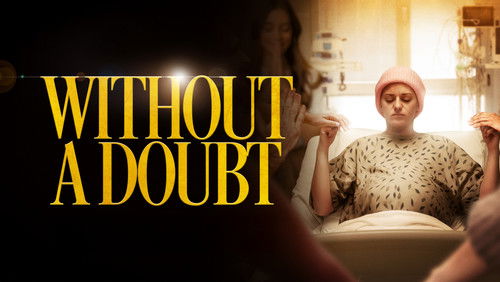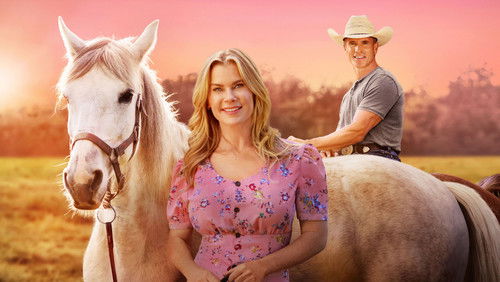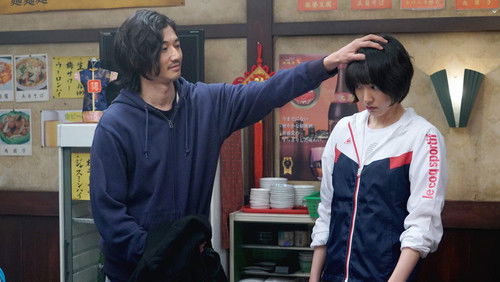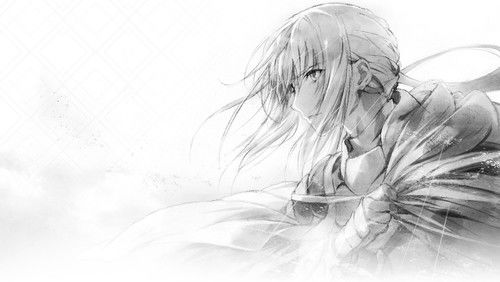Nixon – Der Untergang eines Präsidenten (1995)
49KNixon – Der Untergang eines Präsidenten: Directed by Oliver Stone. With Anthony Hopkins, Joan Allen, Powers Boothe, Ed Harris. A biographical story of former U.S. President Richard Nixon, from his days as a young boy, to his eventual Presidency, which ended in shame.
“Hopkins is remarkable as Nixon. Wisely not even trying for an exact likeness, his interpretation of that so-familiar physicality is uncannily evocative. From the very start, the characterisation is spot-on – the jut of the lower jaw, the growly voice, the rounded shoulders. Once the viewer has adjusted to the initial shock, Hopkins IS Nixon. It ceases to be an issue.u003cbr/u003eu003cbr/u003eTheodore Roosevelt, Washington, Kennedy and (most of all) Lincoln look down from the White House walls at Nixon, their solemn portraits hovering like admonishing ghosts over the Watergate squalor. In life, Roosevelt was bold and self-assured, whereas Nixon dithers: Washingtonu0026#39;s self-effacing propriety confronts a Nixon who is suggesting that the Nazis were right. Kennedy is everything that Nixon could never be – above all else, at ease with himself. Lincoln looks down, from the office wall and from his marble seat in the Memorial, in silent rebuke as his successor debases the presidency.u003cbr/u003eu003cbr/u003eSome of the camera tricks donu0026#39;t work. We see Nixon rooted to the spot at Love Field as the camera soars up and away from him. Why? Obtrusive camera movement is justified only if it adds to our understanding of character or plot. This shot seems to have been included merely for its cleverness. The same is true of the little flashes of black-and-white which keep interrupting the action. At one point, in a dialogue between Nixon and Haldeman, the focus is un-subtly and repeatedly thrown from one man to the other. What does this achieve? Is some artistic goal being pursued, or are the effects included for their own sake? What is the symbolic importance (if any) of the vanishing racehorses?u003cbr/u003eu003cbr/u003eMuch of the attention to detail is of a very high order. Stoneu0026#39;s writing team has done its homework, and we get authentic touches such as Nixonu0026#39;s love of log fires, which meant having to run the White House air conditioning system at full blast during summer. The reconstructions of the White House interiors are superb. We see Nixon and Pat engaging in a domestic scrap beneath murals of more edifying battles like Yorktown and Saratoga. Historical events, recorded on news film at the time, are brilliantly reconstituted, replacing the real Nixon with the Hopkins version. Thus we get convincing reconstructions of the Kennedy TV debate and the 1962 u0026#39;retirementu0026#39; speech. Young Nixonu0026#39;s courtship of Pat is narrated without dialogue as a grainy, jumpy home movie – and is beautifully done. I did not feel quite so positive about the Alger Hiss segment. Welles did this u0026#39;newsreel flashbacku0026#39; idea in u0026quot;Citizen Kaneu0026quot; more than half a century earlier, and did it with such flair that anything which follows is sure to look jaded. It also seemed to me that this passage is badly-placed, coming immediately after the 1962 California defeat.u003cbr/u003eu003cbr/u003eJames Wood plays Bob Haldeman, and does his usual admirable, photogenic best. My quibble with the characterisation is, this isnu0026#39;t THE Haldeman. The historical personage was grimmer, more stately, more formidable (Fred Emeryu0026#39;s u0026quot;Watergateu0026quot; bears this out). Wood is restricted here to the role of an aide, rather than the Chief of the White House Staff, an emperor within his own (not inconsiderable) domain.u003cbr/u003eu003cbr/u003ePat Nixon does not ring true either, but for different reasons. Joan Allen is more than competent as the steely, astute power behind the Nixon throne. The fault is in the characterisation rather than the actor. The real Pat was (so far as one can judge) an altogether less articulate, less philosophical, less knowing individual. Watch her in the REAL u0026quot;Checkersu0026quot; broadcast – she is a stiff, repressed, passive woman, a true 1950u0026#39;s Republican wife, not the power broker that this film would have us believe. It is hard to accept, for example, that Nixonu0026#39;s decision to retire in 1962 was his wifeu0026#39;s diktat.u003cbr/u003eu003cbr/u003eThere are elements of this otherwise excellent film which simply donu0026#39;t work. Would the President of the United States REALLY be pulled out of a face-to-face meeting with Brezhnev to deal with some Watergate minutiae? The real-life Mitchell said that he tolerated Marthau0026#39;s indiscretions u0026quot;because I love heru0026quot;. This touching declaration is cheapened in the film, for no good reason. Similarly, Tricia Nixonu0026#39;s exchange with her father was, in real life, an assertion of unconditional loyalty which was both moving and very much to Nixonu0026#39;s credit. The film version has her asking sceptically, u0026quot;Did you cover up?u0026quot; This is quite wrong. The Nixon women would have considered it treachery even to frame such a question.u003cbr/u003eu003cbr/u003eJohn Williamsu0026#39; epic score is in keeping with the classical tragedy acted out before us. Nixonu0026#39;s tearful prayer with Kissinger and the farewell speech to the White House staff are scenes of extraordinary power.u003cbr/u003eu003cbr/u003ePaul Sorvino gives us a marvellous Kissinger, though in my humble opinion Stone goes too far when he makes Kissinger the White House u0026#39;leakeru0026#39; and accuses the Secretary of State of complicity in the Watergate break-ins.u003cbr/u003eu003cbr/u003eOne scene which works splendidly is the (true) incident at the Lincoln Memorial. Nixon tries to glad-hand the indignant youngsters, using the hearty, patronising approach of a bygone generation. The sad revulsion of the protesters shows the gulf between Nixonu0026#39;s consciousness and the spirit of the age.u003cbr/u003eu003cbr/u003eu0026quot;I hope I havenu0026#39;t let you downu0026quot; is uttered one single time by Nixon, towards the end of the film. The truth is, he hit on this formula of words and used it again and again during the final days of his presidency. It was a last desperate attempt to tweak our sympathy-nodes. As such, it was utterly gauche, utterly craven, utterly guileful, yet utterly unrealistic. In fact, utterly Nixon.”









